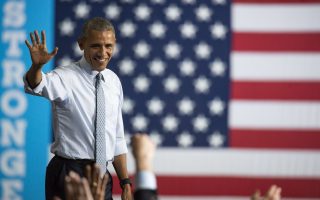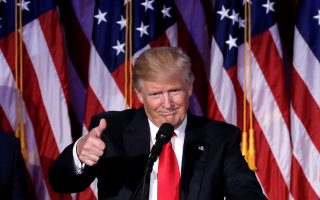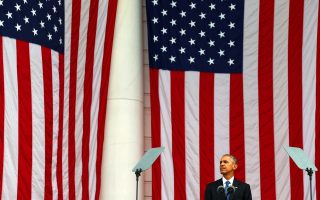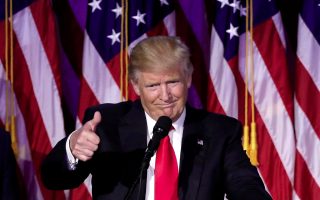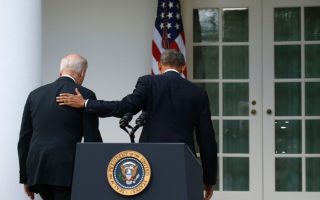Hard hearts in the uncertainty
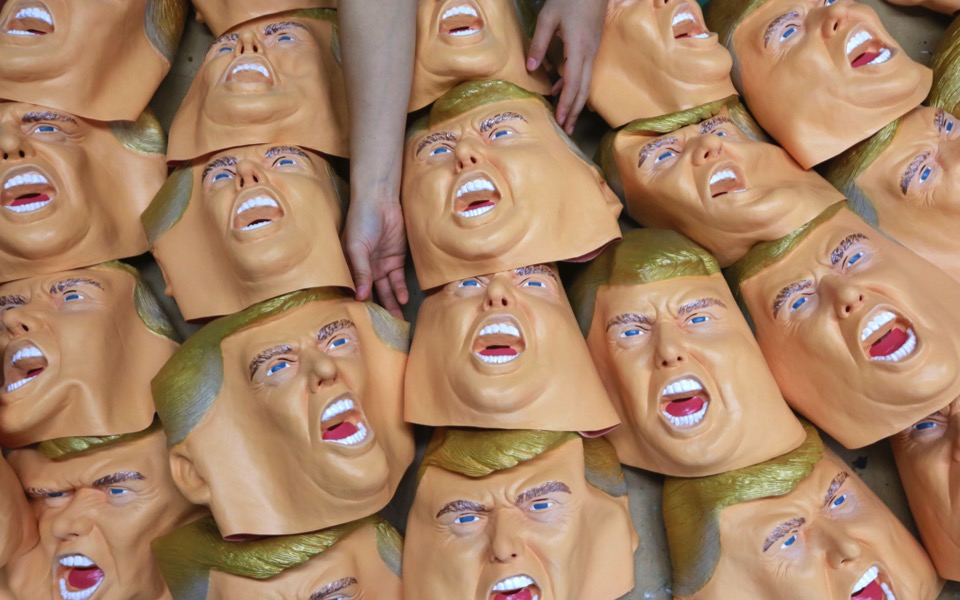
We had fed the heart on fantasies,
The heart's grown brutal from the fare,
More substance in our enmities
Than in our love.
William Butler Yeats
So much has been written about Donald Trump – his past, the dark corners of his career and how unsuited he is for the most important office in the world – and yet the man remains a mystery. Now we expect more light to fall on secrets such as his real financial standing and his business connections, so as to estimate what a Trump presidency could mean for his country, for our own, for Europe and for the planet.
It might be comforting that Trump remains a riddle – allowing a glimmer of hope that the unknown may be better than the known. We know very well what he said during the election campaign, how he functions as a businessman; we also have a clear picture of his character. He has lived in the public spotlight, like the protagonist of a real-life Truman Show, except that here he directs himself. His persona is that of the loudmouth narcissist, the Alpha Male who makes no compromise, for whom the world is black and white and he alone is always in the right.
No one will be surprised if Trump turns out to be what he appears to be – indeed, that under the mask he may be even worse. The truth, however, is that today we cannot know. What we do know is that he is not part of the establishment. Not in the economy, not in politics.
Before the campaign it was not even clear whether he favored the Democrats or the Republicans. The Republican Party’s leadership made no secret of its disdain for him. But what is more significant for the citizens is whether Trump, as a pragmatist, will want to get the job done. And this might force the Republicans to adopt policies that may be more realistic and effective than those forced on them by the Tea Party and other populist currents of the past few years – policies that paralyzed politics.
It is perhaps a vain hope that the arch-populists will water down their positions, but Trump is the only one of his fellow candidates (before he won the nomination) who could make the party march to his tune. Also, he may be the only one who could ignore the hardline stance on many issues that his fellow candidates expressed. It would be in keeping with the president-elect’s image that he ride into the capital on his own and overturn everything. Now whether this same mentality might lead him into the arms of even more radical right-wingers is another question.
“We are closed in, and the key is turned/On our uncertainty,” William Butler Yeats wrote in 1928, contemplating the Irish civil war. (The epigraph is from the same poem, The Stare's Nest by My Window). That is where we all are today, trapped in insecurity. At the very moment that the global system of governance needs reform so as to secure greater justice and ease the dangerous tensions between nations and within societies, forces that despise all forms of collective effort are on the ascendant. This is perhaps the greatest direct danger posed by Trump’s election. The wind that filled his sails blows strong in Europe. After the Brexit disaster we anxiously await the results of next month’s referendum in Italy, the parliamentary elections in Germany and the Netherlands, and the presidential polls in France and Austria.
In the European Union’s largest economies, a swelling tide of public discontent is undermining political elites and the very foundations of liberal democracy. These, though, are the cornerstones of the collective agreements that protected stability, growth and prosperity for more than half a century. The problems that cause this malaise and strengthen demagogues can only be solved through cooperation. The longer they fester, the greater the energy of nationalism will grow, while the inequality gap between groups and states will widen; opportunistic alliances will undermine the continent’s cohesion, as in the period between the two world wars that began in Europe.
Even more dangerous dynamics may develop in other regions, where national and religious differences, along with ambitions for territory and influence, have already caught alight. In the 1930s, the international community was unable to prevent disaster. A significant reason was that the League of Nations was deprived of the United States’ membership because of domestic differences in America. Today, if the United States again avoids creating credible structures for solving problems, if it abdicates responsibility or intervenes clumsily, tensions will grow and conflicts will worsen. Conflicting national fantasies and hearts grown hard lead to certain catastrophe.
